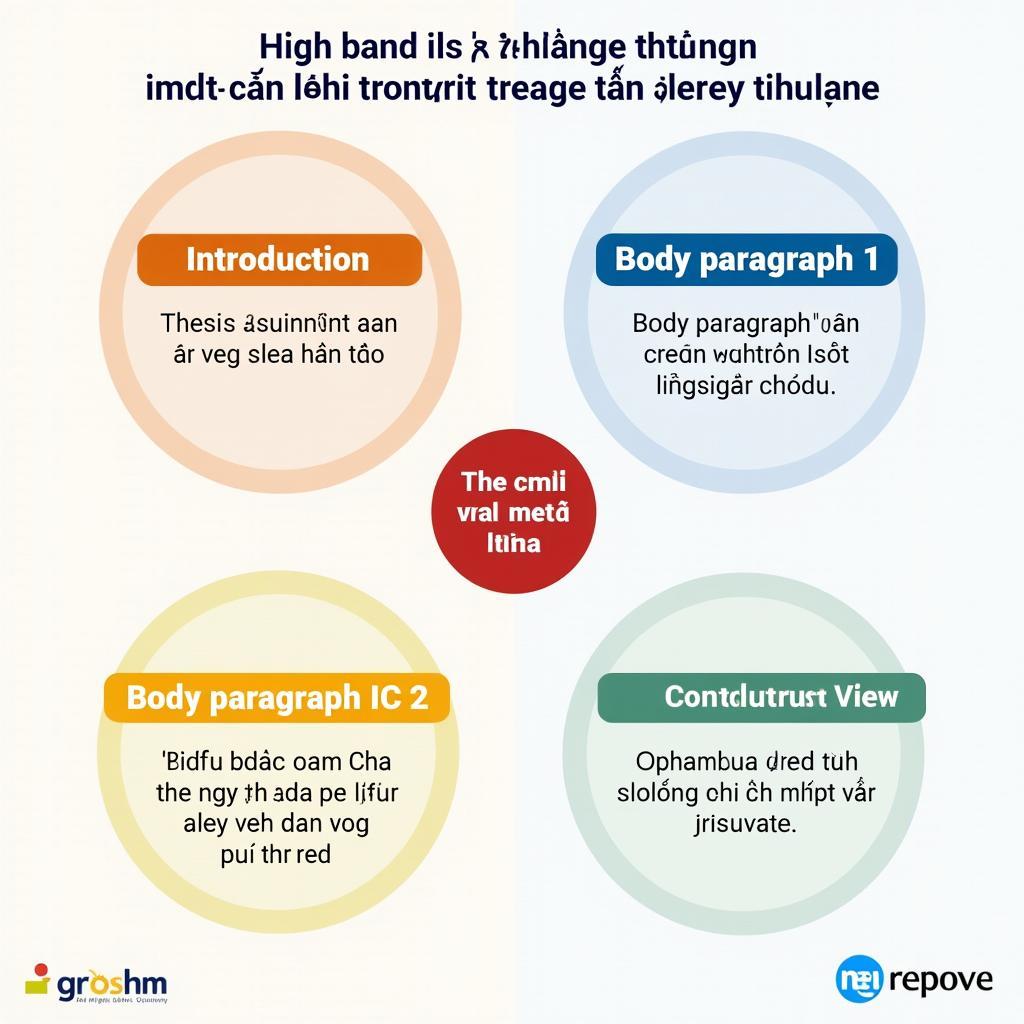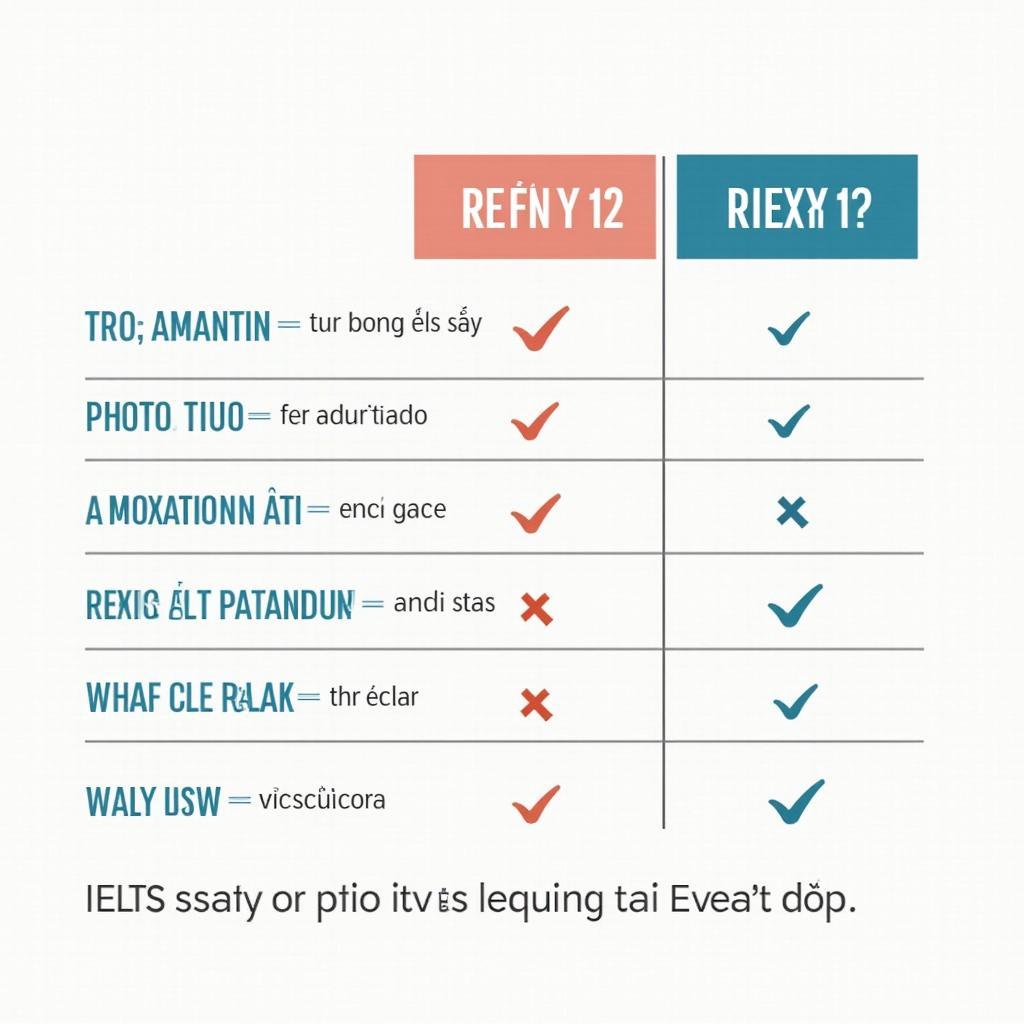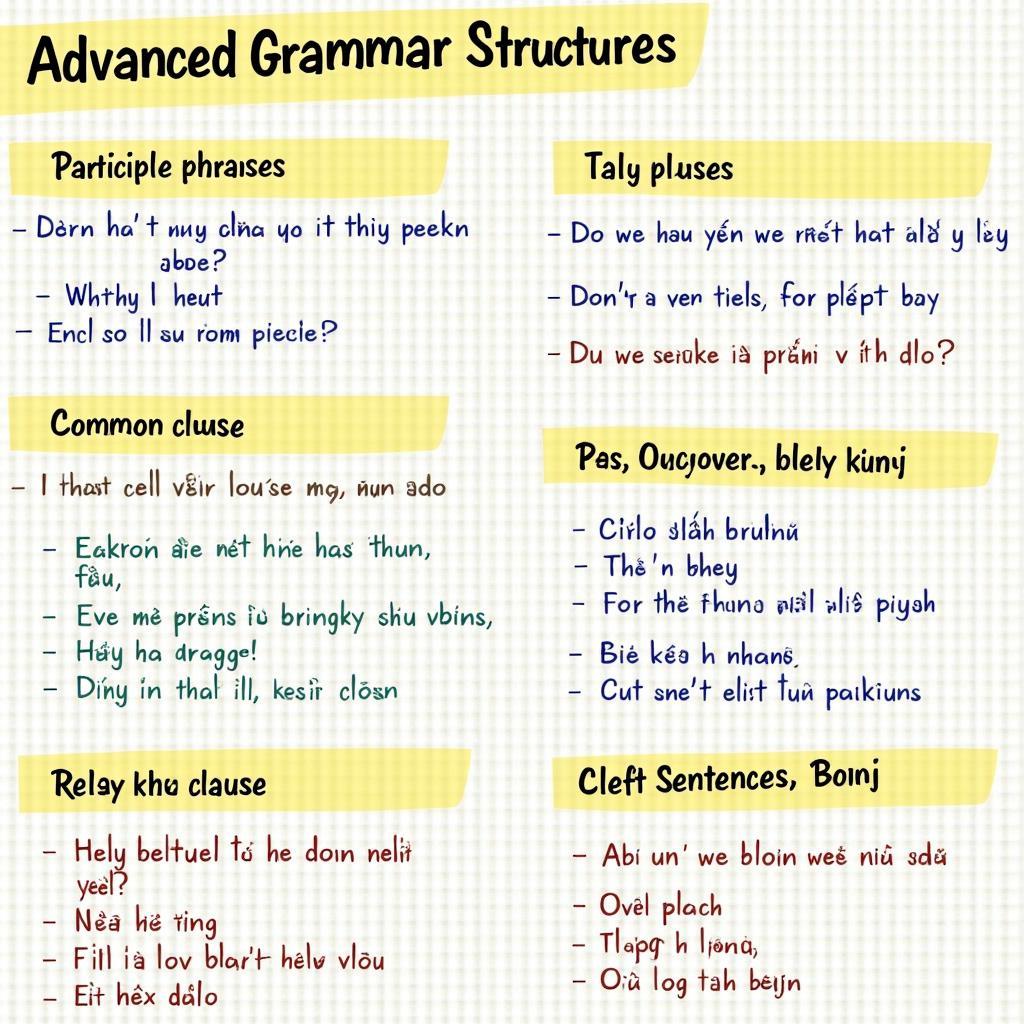Khám phá vũ trụ luôn là một chủ đề thú vị và thường xuyên xuất hiện trong bài thi IELTS Writing Task 2, đặc biệt trong các đề bài liên quan đến khoa học, công nghệ và sự phát triển của xã hội. Chủ đề này không chỉ kiểm tra khả năng diễn đạt ý tưởng của thí sinh mà còn đánh giá khả năng phân tích mối quan hệ giữa nghiên cứu vũ trụ và những ứng dụng thực tiễn trong cuộc sống hàng ngày. Hiểu rõ cách tiếp cận đề tài này sẽ giúp bạn tự tin hơn khi gặp những câu hỏi tương tự.
Trong bài viết này, bạn sẽ được học:
- 3 bài mẫu hoàn chỉnh ở các band điểm khác nhau (Band 5-6, Band 6.5-7, và Band 8-9)
- Phân tích chi tiết về cách chấm điểm theo 4 tiêu chí của IELTS
- Từ vựng chuyên ngành và cấu trúc câu giúp nâng cao điểm số
- Những lỗi thường gặp của học viên Việt Nam và cách khắc phục
Một số đề thi thực tế đã xuất hiện liên quan đến chủ đề này bao gồm:
- “Some people believe that money spent on space research benefits all of humanity. Others think it is better spent on solving problems on Earth. Discuss both views and give your opinion.” (Tháng 6/2022)
- “Space exploration is a waste of money. Governments should spend money on problems on Earth. To what extent do you agree or disagree?” (Tháng 9/2021)
 Học viên IELTS nghiên cứu chủ đề khám phá vũ trụ cho Writing Task 2
Học viên IELTS nghiên cứu chủ đề khám phá vũ trụ cho Writing Task 2
Đề Writing Part 2 Thực Hành
Space exploration requires massive government investment. Some believe this investment is essential for technological advancement, while others argue the money should be spent on more pressing social issues. Discuss both views and give your own opinion.
Dịch đề: Khám phá vũ trụ đòi hỏi khoản đầu tư khổng lồ từ chính phủ. Một số người tin rằng khoản đầu tư này là cần thiết cho sự tiến bộ công nghệ, trong khi những người khác cho rằng tiền nên được chi cho các vấn đề xã hội cấp bách hơn. Thảo luận cả hai quan điểm và đưa ra ý kiến của bạn.
Phân tích đề bài:
Đây là dạng câu hỏi Discussion + Opinion, một trong những dạng phổ biến nhất trong IELTS Writing Task 2. Yêu cầu cụ thể bao gồm:
- Thảo luận quan điểm ủng hộ đầu tư vào khám phá vũ trụ (vì lợi ích công nghệ)
- Thảo luận quan điểm phản đối (nên ưu tiên các vấn đề xã hội)
- Đưa ra ý kiến cá nhân rõ ràng
Các thuật ngữ quan trọng cần hiểu:
- “massive government investment”: Khoản đầu tư lớn từ ngân sách nhà nước, không phải từ tư nhân
- “technological advancement”: Sự tiến bộ về công nghệ, bao gồm cả nghiên cứu và ứng dụng thực tế
- “pressing social issues”: Các vấn đề xã hội cấp thiết như nghèo đói, y tế, giáo dục
Những lỗi thường gặp của học viên Việt Nam:
- Chỉ thảo luận một quan điểm và bỏ qua quan điểm còn lại
- Không đưa ra ý kiến cá nhân rõ ràng hoặc mâu thuẫn với phần thảo luận
- Sử dụng ví dụ quá chung chung, không cụ thể
- Thiếu sự cân bằng giữa hai đoạn thân bài
Cách tiếp cận chiến lược:
- Mở bài: Paraphrase đề bài + nêu cấu trúc bài viết + thesis statement (quan điểm của bạn)
- Thân bài 1: Thảo luận quan điểm ủng hộ đầu tư vũ trụ với 2-3 lập luận có ví dụ cụ thể
- Thân bài 2: Thảo luận quan điểm phản đối với 2-3 lập luận có ví dụ cụ thể
- Kết bài: Tóm tắt cả hai quan điểm + nhấn mạnh lại ý kiến cá nhân
Bài Mẫu Band 8-9
Bài viết Band 8-9 thể hiện khả năng sử dụng ngôn ngữ tinh tế, lập luận chặt chẽ và cấu trúc logic hoàn hảo. Đặc điểm nổi bật bao gồm từ vựng phong phú với nhiều collocations tự nhiên, cấu trúc câu đa dạng và phức tạp, và khả năng phát triển ý tưởng sâu sắc với ví dụ cụ thể thuyết phục.
The debate over space exploration funding has intensified in recent decades, with proponents emphasizing its pivotal role in driving technological innovation, while critics argue that scarce public resources would be better allocated to immediate societal challenges. While both perspectives merit consideration, I believe that strategic investment in space programs yields tangible benefits that ultimately enhance human welfare.
Advocates of space exploration investment highlight its remarkable track record in catalysing technological breakthroughs that permeate daily life. The pursuit of solutions to extreme space environments has historically spawned innovations in materials science, telecommunications, and computing. For instance, satellite technology developed for space missions now underpins global positioning systems, weather forecasting, and internet connectivity that billions rely upon. Moreover, miniaturized electronics, initially designed for spacecraft weight constraints, revolutionized consumer technology. These spillover effects demonstrate how space research creates a multiplier effect, generating far more value than the initial investment through widespread commercial applications.
Conversely, opponents contend that diverting billions toward space programs represents misplaced priorities when fundamental human needs remain unmet. They argue that funds allocated to launching rockets could instead provide clean water infrastructure, combat preventable diseases, or improve educational systems in developing nations. This perspective gains particular resonance when considering that immediate interventions in healthcare or poverty alleviation deliver measurable improvements to vulnerable populations, whereas space exploration benefits may take decades to materialize. The ethical dimension of spending lavishly on distant planets while children lack basic nutrition presents a compelling moral challenge.
In my view, this debate presents a false dichotomy, as space investment and social welfare are not mutually exclusive. Similar to how space exploration can contribute to solving global challenges, governments can pursue both objectives through balanced budgeting, particularly since space programs typically consume less than one percent of national budgets. The technological dividends from space research ultimately create economic growth that funds social programs, while addressing Earth’s problems exclusively risks stagnation. History demonstrates that civilizations investing in frontier exploration consistently outpace those focused solely on immediate concerns.
In conclusion, although concerns about prioritizing space over pressing social issues have merit, the long-term technological and economic benefits of space exploration justify continued investment. A nuanced approach that maintains modest but consistent space program funding while simultaneously addressing urgent social needs represents the most prudent path forward. (420 words)
Phân Tích Band Điểm
| Tiêu chí | Band | Nhận xét |
|---|---|---|
| Task Response (Hoàn thành yêu cầu) | 9 | Bài viết trả lời đầy đủ cả hai phần của câu hỏi với sự phát triển ý tưởng sâu sắc và cân bằng. Quan điểm cá nhân rõ ràng và nhất quán xuyên suốt. Các lập luận được phát triển toàn diện với ví dụ cụ thể và thuyết phục. |
| Coherence & Cohesion (Mạch lạc & Liên kết) | 9 | Cấu trúc logic hoàn hảo với progression tự nhiên giữa các ý. Sử dụng linking devices tinh tế (“Conversely”, “Moreover”, “In my view”) không rập khuôn. Mỗi đoạn có topic sentence rõ ràng và supporting ideas liên kết chặt chẽ. |
| Lexical Resource (Từ vựng) | 9 | Từ vựng phong phú và chính xác cao với nhiều collocations tự nhiên (“pivotal role”, “catalysing breakthroughs”, “spillover effects”, “multiplier effect”). Sử dụng paraphrasing hiệu quả và từ vựng học thuật phù hợp. Không có lỗi về word choice. |
| Grammatical Range & Accuracy (Ngữ pháp) | 9 | Đa dạng cấu trúc câu với complex sentences, relative clauses, participle phrases. Sử dụng thành thạo các thì và cấu trúc nâng cao. Không có lỗi ngữ pháp đáng kể. |
Các Yếu Tố Giúp Bài Này Được Chấm Điểm Cao
-
Mở bài ấn tượng với paraphrasing chuyên nghiệp: Thay vì lặp lại từ đề bài “space exploration requires massive government investment”, tác giả sử dụng “The debate over space exploration funding has intensified” – một cách diễn đạt tinh tế hơn và tạo bối cảnh rộng hơn cho vấn đề.
-
Sử dụng topic sentence mạnh mẽ cho mỗi đoạn thân bài: Câu “Advocates of space exploration investment highlight its remarkable track record…” và “Conversely, opponents contend that…” giúp người đọc dễ dàng nhận ra quan điểm đang được thảo luận.
-
Ví dụ cụ thể và thuyết phục: Thay vì nói chung chung, tác giả đưa ra ví dụ về satellite technology, GPS, weather forecasting – những công nghệ mà mọi người đều biết và sử dụng hàng ngày, tạo sự kết nối với người đọc.
-
Cân bằng giữa hai quan điểm: Mỗi quan điểm được phát triển đều nhau với 2-3 lập luận, cho thấy khả năng phân tích khách quan trước khi đưa ra ý kiến cá nhân.
-
Quan điểm cá nhân tinh tế và có chiều sâu: Thay vì chọn một bên hoàn toàn, tác giả đưa ra giải pháp cân bằng “false dichotomy” và “balanced budgeting”, thể hiện tư duy phản biện cao.
-
Sử dụng academic language tự nhiên: Các cụm từ như “merit consideration”, “tangible benefits”, “multiplier effect”, “false dichotomy” được sử dụng đúng ngữ cảnh, không gượng ép.
-
Kết bài tổng hợp và đưa ra hướng đi: Không chỉ lặp lại ý kiến mà còn đề xuất “nuanced approach” – một giải pháp thực tế và khả thi, cho thấy tư duy phân tích sâu sắc.
 Cấu trúc bài luận IELTS Writing Task 2 đạt band điểm cao về vai trò vũ trụ
Cấu trúc bài luận IELTS Writing Task 2 đạt band điểm cao về vai trò vũ trụ
Bài Mẫu Band 6.5-7
Bài viết Band 6.5-7 thể hiện khả năng sử dụng ngôn ngữ tốt với một số điểm mạnh về từ vựng và ngữ pháp, nhưng chưa đạt đến sự tinh tế và phức tạp của Band 8-9. Bài viết vẫn trả lời đầy đủ câu hỏi nhưng phát triển ý tưởng chưa sâu sắc bằng.
Nowadays, governments spend a lot of money on space exploration. Some people think this investment is necessary for technological development, but others believe the money should be used for more important problems on Earth. In this essay, I will discuss both views and give my opinion.
On the one hand, space exploration brings many benefits to technology. When scientists try to solve problems in space, they create new inventions that we can use in our daily lives. For example, many technologies we use today like satellite TV, GPS navigation, and weather forecasting came from space research. Additionally, space programs encourage young people to study science and engineering, which is good for a country’s future development. Companies like SpaceX and NASA also create many jobs for engineers and scientists.
On the other hand, many people argue that governments should focus on urgent problems on Earth first. There are still millions of people who don’t have access to clean water, proper healthcare, or good education. For instance, in many developing countries, children suffer from diseases that could be prevented with better medical facilities. The money spent on one space mission could build many hospitals or schools. Furthermore, issues like climate change and poverty need immediate attention and funding because they affect people’s lives right now.
In my opinion, I think both space exploration and social problems are important, but governments need to find a balance. While it is true that there are many urgent issues on Earth, we should not stop investing in space research completely. Space technology has helped us understand climate change better and improve communication around the world. However, I believe governments should spend more money on solving immediate problems and allocate a smaller percentage of the budget to space programs.
In conclusion, although space exploration is valuable for technological progress, governments should prioritize spending on pressing social issues while maintaining some investment in space research. This balanced approach will benefit society both now and in the future. (332 words)
Phân Tích Band Điểm
| Tiêu chí | Band | Nhận xét |
|---|---|---|
| Task Response (Hoàn thành yêu cầu) | 7 | Bài viết trả lời đầy đủ cả hai phần của câu hỏi và có quan điểm rõ ràng. Tuy nhiên, phát triển ý tưởng chưa sâu và ví dụ còn chung chung. Một số lập luận cần được mở rộng thêm để đạt band cao hơn. |
| Coherence & Cohesion (Mạch lạc & Liên kết) | 7 | Cấu trúc bài rõ ràng với các đoạn văn được tổ chức tốt. Sử dụng linking words đúng (“On the one hand”, “Furthermore”, “In my opinion”) nhưng còn đơn giản và rập khuôn. Progression giữa các ý khá tự nhiên. |
| Lexical Resource (Từ vựng) | 6.5 | Từ vựng đủ để diễn đạt ý nhưng thiếu sự đa dạng và tinh tế. Có một số collocations tốt (“urgent problems”, “pressing social issues”) nhưng phần lớn là từ vựng phổ thông. Một vài lỗi nhỏ về word choice. |
| Grammatical Range & Accuracy (Ngữ pháp) | 7 | Sử dụng được mix của câu đơn và câu phức. Có một số cấu trúc phức tạp đúng nhưng chưa đa dạng. Lỗi ngữ pháp nhỏ không ảnh hưởng đến khả năng hiểu. |
So Sánh Với Bài Band 8-9
| Khía cạnh | Bài Band 6.5-7 | Bài Band 8-9 |
|---|---|---|
| Mở bài | “Nowadays, governments spend a lot of money…” – đơn giản, trực tiếp | “The debate over space exploration funding has intensified…” – tinh tế, tạo bối cảnh |
| Từ vựng | “brings many benefits”, “important problems” – phổ thông | “pivotal role”, “catalysing breakthroughs”, “spillover effects” – học thuật, chuyên ngành |
| Ví dụ | “satellite TV, GPS” – liệt kê đơn giản | Giải thích chi tiết cách satellite technology tạo ra multiplier effect |
| Lập luận | Đưa ra ý kiến nhưng chưa phát triển sâu | Phân tích đa chiều, đưa ra “false dichotomy” và giải pháp cân bằng |
| Linking words | “On the one hand”, “Furthermore” – cơ bản, rập khuôn | “Conversely”, “Moreover”, “This perspective gains particular resonance” – đa dạng, tự nhiên |
| Cấu trúc câu | Chủ yếu là câu đơn và câu phức đơn giản | Đa dạng: participle phrases, relative clauses, complex structures |
Điểm khác biệt lớn nhất: Bài Band 8-9 thể hiện khả năng phân tích sâu với cụm “false dichotomy” – chỉ ra rằng đây là một sự đối lập giả tạo, trong khi bài Band 6.5-7 chỉ đơn giản nói cần “find a balance” mà không giải thích vì sao.
Bài Mẫu Band 5-6
Bài viết Band 5-6 thể hiện khả năng diễn đạt ý tưởng cơ bản nhưng còn nhiều hạn chế về từ vựng, ngữ pháp và cách phát triển ý. Bài viết có cấu trúc nhưng còn đơn giản và có một số lỗi ảnh hưởng đến chất lượng.
Today, many governments spending huge money for space exploration. Some people say this is important for technology development, but other people think the money should spend on problems on Earth. I will discuss two sides and give my opinion.
First, space exploration is good for technology. When scientists research about space, they invent new things that useful for people. For example, we have satellite and GPS because of space research. These things help us in everyday life like watching TV and finding directions. Also, space programs give jobs to many peoples who work as scientists and engineers. This is good for economy of country.
However, many people think government should use money for more important things. In the world, there are many poor people who don’t have food, water and house. The government should help these people first before spending money to space. For example, in my country, many children cannot go to school because their family is poor. If government use the money from space programs, they can build more schools and hospitals. These problems are more serious than space exploration because people are suffering now.
In my opinion, I think space exploration is important but government should think about problems on Earth first. Because there are too many peoples need help right now. Space research can wait but people cannot wait. The government can spend little money on space and more money on helping poor people and building facilities like schools, hospitals and roads.
In conclusion, space exploration have some benefits for technology but I think government should spend money on problems on Earth first because these problems more urgent. Government should help people who need help now and later they can continue space programs. (287 words)
Phân Tích Band Điểm
| Tiêu chí | Band | Nhận xét |
|---|---|---|
| Task Response (Hoàn thành yêu cầu) | 6 | Bài viết trả lời cả hai phần của câu hỏi và có quan điểm, nhưng phát triển ý còn mơ hồ và chung chung. Ví dụ thiếu cụ thể và lập luận chưa thuyết phục. Một số ý tưởng bị lặp lại. |
| Coherence & Cohesion (Mạch lạc & Liên kết) | 5.5 | Có cấu trúc cơ bản nhưng còn đơn giản. Linking words được sử dụng nhưng hạn chế (“First”, “However”, “Also”). Một số ý không được kết nối mượt mà. Thiếu topic sentence rõ ràng. |
| Lexical Resource (Từ vựng) | 5.5 | Từ vựng hạn chế và lặp lại nhiều (“money”, “people”, “government”). Có lỗi về word choice và word form. Thiếu collocations và từ vựng học thuật. Một số từ dùng không chính xác. |
| Grammatical Range & Accuracy (Ngữ pháp) | 5 | Chủ yếu là câu đơn giản. Nhiều lỗi ngữ pháp về subject-verb agreement, article, preposition. Lỗi ảnh hưởng đến khả năng hiểu một phần. Thiếu đa dạng cấu trúc câu. |
Những Lỗi Sai Của Bài – Phân Tích & Giải Thích
| Lỗi sai | Loại lỗi | Sửa lại | Giải thích |
|---|---|---|---|
| “governments spending” | Subject-verb agreement | “governments spend” | Trong câu này cần động từ chính chia theo chủ ngữ, không dùng V-ing. “Spending” chỉ dùng trong thì tiếp diễn khi có “to be” đi kèm. |
| “research about space” | Preposition | “research on/into space” | Động từ “research” đi với giới từ “on” hoặc “into”, không dùng “about”. Đây là collocation cố định trong tiếng Anh học thuật. |
| “things that useful” | Missing verb | “things that are useful” | Mệnh đề quan hệ cần có động từ “to be”. Không thể bỏ “are” trong trường hợp này vì “useful” là tính từ, không phải động từ. |
| “many peoples” | Countable/Uncountable noun | “many people” | “People” đã là danh từ số nhiều, không cần thêm “s”. Đây là lỗi phổ biến của học viên Việt Nam vì trong tiếng Việt “người” có thể thêm số nhiều. |
| “economy of country” | Missing article | “the economy of the country” | Cần mạo từ “the” trước “economy” (danh từ xác định) và “country” (đã được nhắc đến). |
| “the money should spend” | Passive voice | “the money should be spent” | Cần dùng thể bị động với “be + V3” sau modal verb “should”. Tiền không thể tự “spend” được. |
| “In my country” | Article usage | “In my country” (đúng) NHƯNG context chung chung | Về mặt ngữ pháp đúng nhưng nên cụ thể hơn hoặc dùng “in many developing countries” để tránh subjective. |
| “too many peoples need help” | Word form | “too many people need help” | Giống lỗi trên về “people”. Ngoài ra “too many” mang nghĩa tiêu cực không phù hợp ở đây, nên dùng “many people”. |
| “space exploration have” | Subject-verb agreement | “space exploration has” | “Space exploration” là danh từ số ít nên động từ phải là “has”, không phải “have”. Đây là lỗi cơ bản nhưng rất phổ biến. |
| “problems more urgent” | Sentence structure | “problems are more urgent” | Thiếu động từ “to be” trong câu so sánh. Không thể bỏ “are” trong cấu trúc này. |
Cách Cải Thiện Từ Band 6 Lên Band 7
Để nâng điểm từ Band 6 lên Band 7, học viên cần tập trung vào những điểm sau:
-
Nâng cao từ vựng học thuật: Thay vì dùng “good for”, hãy dùng “beneficial to” hoặc “advantageous for”. Thay “important” bằng “crucial”, “essential”, “vital”. Học các collocations như “allocate resources”, “pressing issues”, “immediate concerns”.
-
Sử dụng cấu trúc câu phức tạp hơn: Thay vì viết “Space exploration is good. It helps technology”, hãy kết hợp: “Space exploration is beneficial in that it accelerates technological advancement.” Sử dụng mệnh đề quan hệ, participle phrases, và conditional sentences.
-
Phát triển ý sâu hơn với ví dụ cụ thể: Đừng chỉ nói “satellite”, hãy giải thích “Satellite technology, initially developed for space missions, now enables global communication networks that billions of people depend on daily.”
-
Tránh lặp từ: Nếu đã dùng “money” ở câu trước, câu sau dùng “funds”, “financial resources”, “budget allocation”. Tạo synonym list cho các từ thường dùng.
-
Cải thiện ngữ pháp cơ bản: Ôn luyện subject-verb agreement, articles (a/an/the), và prepositions. Đây là những lỗi điển hình của học viên Việt Nam làm giảm điểm Grammar xuống Band 5-6.
-
Linking devices tự nhiên hơn: Thay vì luôn dùng “First, Second”, hãy dùng “One significant advantage”, “Another compelling reason”, “Despite these benefits”. Tương tự như The role of technology in addressing global poverty, việc kết nối ý một cách tự nhiên sẽ giúp bài viết mạch lạc hơn.
-
Paraphrase đề bài hiệu quả: Không copy nguyên từ đề bài vào mở bài. Nếu đề dùng “massive government investment”, bạn dùng “substantial public funding” hoặc “significant state expenditure”.
 So sánh chi tiết bài luận IELTS Writing các band điểm về công nghệ vũ trụ
So sánh chi tiết bài luận IELTS Writing các band điểm về công nghệ vũ trụ
Từ Vựng Quan Trọng Cần Nhớ
| Từ/Cụm từ | Loại từ | Phiên âm | Nghĩa tiếng Việt | Ví dụ | Collocations |
|---|---|---|---|---|---|
| space exploration | noun phrase | /speɪs ˌekspləˈreɪʃən/ | Khám phá vũ trụ | Space exploration has led to numerous technological breakthroughs. | deep space exploration, manned space exploration, space exploration program |
| technological advancement | noun phrase | /ˌteknəˈlɒdʒɪkəl ədˈvɑːnsmənt/ | Tiến bộ công nghệ | Technological advancement in recent decades has transformed daily life. | rapid technological advancement, drive technological advancement, facilitate technological advancement |
| catalyse breakthroughs | verb phrase | /ˈkætəlaɪz ˈbreɪkθruːz/ | Thúc đẩy những đột phá | Government funding can catalyse breakthroughs in scientific research. | catalyse innovation, catalyse change, catalyse development |
| spillover effects | noun phrase | /ˈspɪləʊvə ɪˈfekts/ | Hiệu ứng lan toa | The spillover effects of space research benefit multiple industries. | positive spillover effects, economic spillover effects, technological spillover effects |
| pressing social issues | noun phrase | /ˈpresɪŋ ˈsəʊʃəl ˈɪʃuːz/ | Các vấn đề xã hội cấp bách | Governments must address pressing social issues like poverty and healthcare. | tackle pressing issues, urgent social issues, pressing global issues |
| allocate resources | verb phrase | /ˈæləkeɪt rɪˈsɔːsɪz/ | Phân bổ nguồn lực | Nations must allocate resources efficiently between different priorities. | allocate funds, allocate budget, resource allocation |
| multiplier effect | noun phrase | /ˈmʌltɪplaɪə ɪˈfekt/ | Hiệu ứng nhân lên | Investment in research creates a multiplier effect throughout the economy. | economic multiplier effect, generate multiplier effects, amplify the multiplier effect |
| misplaced priorities | noun phrase | /mɪsˈpleɪst praɪˈɒrətiz/ | Ưu tiên sai lầm | Critics argue that space spending represents misplaced priorities. | misplaced focus, misplaced emphasis, question priorities |
| tangible benefits | noun phrase | /ˈtændʒəbəl ˈbenɪfɪts/ | Lợi ích hữu hình, cụ thể | Research must deliver tangible benefits to justify public investment. | provide tangible benefits, tangible results, tangible outcomes |
| satellite technology | noun phrase | /ˈsætəlaɪt tekˈnɒlədʒi/ | Công nghệ vệ tinh | Satellite technology enables global communication and navigation systems. | advanced satellite technology, satellite communication, satellite-based technology |
| frontier exploration | noun phrase | /frʌnˈtɪə ˌekspləˈreɪʃən/ | Khám phá biên giới (vùng chưa biết) | Frontier exploration has historically driven human progress. | scientific frontier, push the frontier, frontier research |
| vulnerable populations | noun phrase | /ˈvʌlnərəbəl ˌpɒpjuˈleɪʃənz/ | Các nhóm dân cư dễ bị tổn thương | Policies should prioritize vulnerable populations during economic downturns. | protect vulnerable populations, support vulnerable groups, vulnerable communities |
| immediate interventions | noun phrase | /ɪˈmiːdiət ˌɪntəˈvenʃənz/ | Can thiệp tức thời | Immediate interventions are necessary to prevent humanitarian crises. | require immediate intervention, emergency interventions, timely interventions |
| balanced budgeting | noun phrase | /ˈbælənst ˈbʌdʒɪtɪŋ/ | Lập ngân sách cân bằng | Balanced budgeting allows governments to fund multiple priorities simultaneously. | fiscal balance, budget allocation, budgetary constraints |
| economic stagnation | noun phrase | /ˌiːkəˈnɒmɪk stægˈneɪʃən/ | Sự trì trệ kinh tế | Lack of innovation leads to economic stagnation over time. | prolonged stagnation, avoid stagnation, economic decline |
Cấu Trúc Câu Dễ “Ăn Điểm” Cao
1. Câu phức với mệnh đề danh từ làm chủ ngữ
Công thức: What/That + S + V + V (chính) + O
Ví dụ từ bài Band 8-9:
What distinguishes successful space programs is their ability to generate technological dividends that permeate society.
Tại sao cấu trúc này ghi điểm cao: Cấu trúc này thể hiện khả năng sử dụng mệnh đề danh từ (noun clause) làm chủ ngữ, một dấu hiệu của trình độ ngữ pháp cao. Thay vì câu đơn giản “Successful space programs generate technological dividends”, cấu trúc này nhấn mạnh vào đặc điểm nổi bật và tạo sự đa dạng trong bài viết.
Ví dụ bổ sung:
- What concerns critics most is the opportunity cost of diverting funds from social programs.
- That space exploration yields long-term benefits has been demonstrated repeatedly throughout history.
- What makes this investment justifiable is the tangible improvements it brings to everyday technology.
Lỗi thường gặp của học viên Việt Nam: Nhiều học viên viết “What successful space programs is their ability…” (thiếu động từ) hoặc “What distinguish… are…” (không chia động từ theo chủ ngữ số ít “What”). Cần nhớ “What” luôn là chủ ngữ số ít.
2. Mệnh đề quan hệ không xác định (Non-defining relative clause)
Công thức: S + , + which/who/whose + V + , + V (chính)
Ví dụ từ bài Band 8-9:
Satellite technology, which was initially developed for military and scientific purposes, now underpins critical infrastructure that billions depend upon.
Tại sao cấu trúc này ghi điểm cao: Mệnh đề quan hệ không xác định giúp bổ sung thông tin mà không làm gián đoạn luồng ý chính. Nó thể hiện khả năng kết hợp thông tin phức tạp trong một câu duy nhất, thay vì viết nhiều câu ngắn. Đặc biệt, việc sử dụng dấu phẩy đúng là dấu hiệu của người viết thành thạo.
Ví dụ bổ sung:
- The miniaturization of electronics, which emerged from spacecraft weight constraints, revolutionized consumer technology globally.
- NASA’s budget, which represents less than 0.5% of federal spending, generates disproportionate economic returns.
- Space research, whose benefits often take decades to materialize, requires patient long-term investment strategies.
Lỗi thường gặp của học viên Việt Nam: Quên dấu phẩy hoặc nhầm lẫn giữa “which” (không xác định) và “that” (xác định). Cần nhớ: nếu bỏ mệnh đề quan hệ đi mà câu vẫn có nghĩa hoàn chỉnh thì dùng “which” và có dấu phẩy.
3. Cụm phân từ (Participle phrases)
Công thức: V-ing/V-ed + O, + S + V (chính) HOẶC S, + V-ing/V-ed + O, + V (chính)
Ví dụ từ bài Band 8-9:
Recognizing these concerns, policymakers must nevertheless balance immediate needs against long-term strategic investments.
Tại sao cấu trúc này ghi điểm cao: Participle phrases giúp câu văn súc tích và mượt mà hơn bằng cách kết hợp hai hành động trong một câu. Điều này cho thấy khả năng sử dụng reduced clauses – một kỹ năng ngữ pháp nâng cao. Cấu trúc này cũng tạo sự đa dạng so với việc chỉ dùng mệnh đề đầy đủ.
Ví dụ bổ sung:
- Considering the economic multiplier effects, space investment generates far more value than initially apparent.
- Faced with budgetary constraints, governments must prioritize programs offering both immediate and future returns.
- Having witnessed the benefits of satellite technology, few would argue against continued space research funding.
Lỗi thường gặp của học viên Việt Nam: Sai chủ ngữ logic (dangling modifier). Ví dụ sai: “Recognizing these concerns, immediate needs must be balanced…” (Chủ ngữ “immediate needs” không thể “recognize”). Chủ ngữ của mệnh đề chính phải là người/vật thực hiện hành động trong participle phrase.
 Cấu trúc ngữ pháp nâng cao cho IELTS Writing về khám phá không gian
Cấu trúc ngữ pháp nâng cao cho IELTS Writing về khám phá không gian
4. Câu chẻ để nhấn mạnh (Cleft sentences)
Công thức: It is/was + noun/adjective + that + S + V
Ví dụ từ bài Band 8-9:
It is precisely this multiplier effect that justifies continued public investment in space programs.
Tại sao cấu trúc này ghi điểm cao: Câu chẻ (cleft sentence) là công cụ hùng mạnh để nhấn mạnh thông tin quan trọng. Thay vì câu bình thường “This multiplier effect justifies continued investment”, câu chẻ đặt trọng tâm vào “multiplier effect”, làm nổi bật luận điểm chính. Đây là dấu hiệu của người viết biết cách điều khiển focus và emphasis trong câu.
Ví dụ bổ sung:
- It is the long-term nature of benefits that critics often overlook when evaluating space programs.
- It was satellite technology that transformed global communication systems fundamentally.
- It is through balanced budgeting that governments can pursue both social welfare and scientific advancement.
Lỗi thường gặp của học viên Việt Nam: Dùng sai “It is… who” cho người và “It is… that” cho vật, hoặc quên “that” hoàn toàn. Một số học viên cũng lạm dụng cấu trúc này, khiến bài viết trở nên rập khuôn. Chỉ nên dùng 1-2 lần trong toàn bài để nhấn mạnh điểm quan trọng nhất.
5. Câu điều kiện hỗn hợp (Mixed conditional)
Công thức: If + S + had + V3, S + would/could + V (hiện tại) HOẶC If + S + V (quá khứ đơn), S + would have + V3
Ví dụ áp dụng cho chủ đề:
If governments had not invested in space exploration decades ago, we would not have the advanced communication networks that modern society relies upon today.
Tại sao cấu trúc này ghi điểm cao: Mixed conditional thể hiện khả năng kết nối nguyên nhân trong quá khứ với kết quả ở hiện tại, cho thấy tư duy logic phức tạp. Điều này đặc biệt hữu ích khi thảo luận về tác động lâu dài của các quyết định chính sách.
Ví dụ bổ sung:
- If space research had been abandoned in the 1970s, current technology would be decades behind its present state.
- If nations prioritized only immediate concerns, they would have missed opportunities that now drive economic growth. Tương tự như space exploration benefits, những lợi ích từ đầu tư nghiên cứu thường mất nhiều thời gian mới thấy rõ.
- If we continue neglecting long-term investments, future generations would face technological stagnation that could have been prevented.
Lỗi thường gặp của học viên Việt Nam: Nhầm lẫn giữa các loại câu điều kiện và dùng sai thì. Nhiều học viên viết “If governments did not invest…, we would not have…” (type 2 thuần túy) thay vì mixed conditional. Cần phân biệt rõ: điều kiện ở thời điểm nào (quá khứ/hiện tại) và kết quả ở thời điểm nào.
6. Đảo ngữ nhấn mạnh (Inversion for emphasis)
Công thức: Rarely/Seldom/Never/Not only + Auxiliary + S + V + Main clause HOẶC Only + time/manner + Auxiliary + S + V
Ví dụ áp dụng cho chủ đề:
Rarely does an investment yield such diverse and far-reaching benefits as space exploration programs have demonstrated.
Tại sao cấu trúc này ghi điểm cao: Đảo ngữ là đặc điểm của văn phong trang trọng, học thuật. Nó không chỉ tạo sự đa dạng mà còn nhấn mạnh tính hiếm có hoặc đặc biệt của thông tin. Examiner sẽ đánh giá cao khả năng sử dụng cấu trúc này một cách tự nhiên và phù hợp.
Ví dụ bổ sung:
- Not only does space research advance technology, but it also inspires future generations of scientists.
- Only by maintaining consistent investment can nations reap the long-term benefits of space programs.
- Seldom have critics acknowledged the indirect economic benefits that space exploration generates.
- Never before has humanity possessed such advanced tools for understanding our planet and universe.
Lỗi thường gặp của học viên Việt Nam: Quên đảo trợ động từ lên trước chủ ngữ hoặc dùng sai trợ động từ. Ví dụ sai: “Rarely space programs yield…” (thiếu trợ động từ “do”) hoặc “Not only space research advance…” (sai cấu trúc). Cần nhớ công thức: Negative word + Auxiliary + Subject + Main verb.
Kết Bài
Chủ đề vai trò của khám phá vũ trụ trong tiến bộ công nghệ là một đề tài phức tạp và đa chiều, đòi hỏi thí sinh phải cân bằng giữa việc thừa nhận lợi ích lâu dài và những quan ngại thực tế về ưu tiên ngân sách. Như đã phân tích qua ba bài mẫu ở các band điểm khác nhau, sự khác biệt giữa một bài Band 5-6 và Band 8-9 không chỉ nằm ở từ vựng hay ngữ pháp, mà còn ở độ sâu của lập luận, khả năng phân tích đa chiều và cách kết nối ý tưởng một cách tinh tế.
Để đạt band điểm cao trong chủ đề này, bạn cần:
- Hiểu rõ mối liên hệ giữa nghiên cứu vũ trụ và các ứng dụng công nghệ thực tế
- Sử dụng ví dụ cụ thể thay vì lập luận chung chung
- Thể hiện khả năng nhìn nhận vấn đề từ nhiều góc độ
- Tránh những lỗi ngữ pháp điển hình của học viên Việt Nam như articles, subject-verb agreement
- Áp dụng đa dạng cấu trúc câu nâng cao một cách tự nhiên
Tương tự như how does space research benefit society, việc hiểu sâu về mối quan hệ nhân quả và các tác động dài hạn sẽ giúp bạn xây dựng lập luận thuyết phục hơn.
Hãy nhớ rằng, IELTS Writing không phải là bài kiểm tra kiến thức chuyên môn về vũ trụ, mà là đánh giá khả năng sử dụng tiếng Anh học thuật để trình bày, phân tích và bảo vệ quan điểm. Thực hành thường xuyên với các đề tài tương tự, học từ những bài mẫu chất lượng cao, và không ngừng cải thiện những điểm yếu của bản thân là con đường chắc chắn để đạt được band điểm mục tiêu.
Chúc bạn học tốt và tự tin chinh phục IELTS Writing Task 2!



[…] xây dựng logic, không cồng kềnh hay khó hiểu. Tương tự như cách viết về The role of space exploration in technological advancement, bài viết kết hợp được tính học thuật và dễ […]